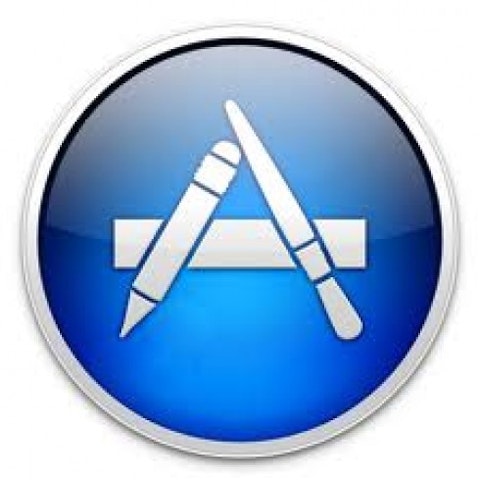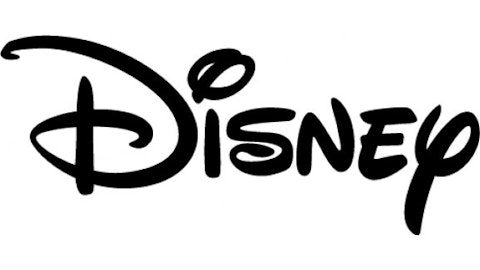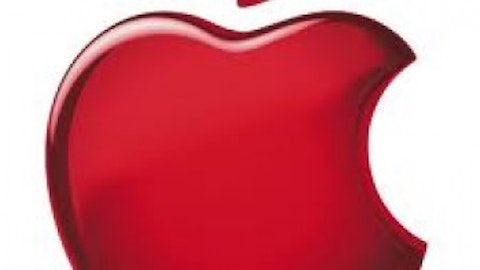Apple Inc. (NASDAQ:AAPL)‘s recent iPhone news was disappointing. Gone are the days when Steve Jobs’ announcements would galvanize fans with some amazing new features or groundbreaking new products. The iPhone 5 news felt “meh.” Even the previously interesting concept of the iPhone 5c not only left a lot to be desired, but there’s also good reason to believe it’s simply a fail.
Is Apple Inc. (NASDAQ:AAPL) Microsoft Corporation (NASDAQ:MSFT)ening? In other words, will it end up like Microsoft Corporation (NASDAQ:MSFT), with once-mighty advantage eroded as the company’s supposed innovations continue to fall short of the amazement we became accustomed to under much of Steve Jobs’ reign?
Holding Apple Inc. (NASDAQ:AAPL) with guarded optimism
I bought shares of Apple Inc. (NASDAQ:AAPL) for the Prosocial Portfolio I manage for Fool.com mostly because it had become incredibly cheap (check out its 52-week high); at some price levels, buying shares of great companies is difficult to resist.
It was also improving some of its social aspects, which has weight for inclusion in the portfolio. I still don’t believe it’s particularly overvalued, but we shouldn’t underestimate the missteps it could make, and should keep our eyes on the developments.
For a while there, Wall Street and general investors seemed to be pessimistic to the point of thinking Apple Inc. (NASDAQ:AAPL) was going to do a swan-dive into nothingness, and common sense tells us that certainly isn’t the case. Apple Inc. (NASDAQ:AAPL) still has many beautiful, well-designed products and extremely loyal customers.
However, the recent iPhone hoopla indeed turned out to be “meh,” if not worse. The biggest shocker — and logic disconnect — is that the supposedly “cheaper” iPhone 5c is actually $549 without subsidies. From the consumer side, that makes no sense if they’re not getting the cheaper deal through a plan.
Why pay for a phone with fewer features made of cheaper (albeit colorful) materials when, if you shelled out just a little more money, you could get the high-end version? That’s not customer-friendly — it’s friendly for Apple’s profit margins. That’s a chilling sign that bears watching, because those are the kinds of profit-driving tricks that eventually can make consumers very mad.
Microsoftening
Why am I bringing up the possibility of Apple’s “Microsoftening” in competitive advantage? Long ago, Apple was a niche player — albeit possessing an extremely loyal fan base. Microsoft Corporation (NASDAQ:MSFT) had a major advantage, to the point of being viewed as downright monopolistic, both by consumers and government antitrust entities.
What a difference time makes for the biggest, most powerful companies, though. Once Bill Gates let go of Microsoft Corporation (NASDAQ:MSFT)’s reins and Steve Ballmer took over, Microsoft’s brand eroded and now feels like an afterthought in tech. The stock plunged in 2000 (cue up Ballmer’s entrance), and it has been an unimpressive investment since. In fact, if one bought shares in the beginning of 2000 and held on until now, that person would have lost 25%.
Sadly enough, today it seems that Microsoft could have some of the most beautiful products in the world, and only diehard Microsoft fans would even notice. (Talk about the shoe on the other foot these days.) It just doesn’t have the brand cachet.
Still, receiving a string of lackluster product announcements from Apple sticks out like a sore thumb compared with the Jobsian days. It could find itself on the same trajectory.
Meanwhile, when it comes to the iPhone, the stakes are high. Google Inc (NASDAQ:GOOG)‘s Android has plenty of users, and many view it as a formidable rival to Apple’s iPhone. For example, much has been made about Samsung’s ability to stick it to the iPhone with its Android models.
Reports of Apple’s death …
Despite concerns, I’m not arguing that Apple is dead or that it’s time to sell. I even continue to think it’s a fine time to buy. Apple may not have the pizzazz it used to possess, but so far, its products are still popular and admired.
Studies have shown that customers are more loyal to the iPhone than they are to Android. Consumer Intelligence Research Partners said recently that 81% of iPhone users bought another iPhone in a one-year period. Only 68% stuck with Android when they went to switch.
Meanwhile, more Android users defected to iPhones during the period, far outpacing iPhone users who switched the other way. Of iPhone users, 20% were snatched away from Android’s universe.
That says something about the beauty of Apple’s iPhone user experience. Steve Jobs may have been hard about his walled garden of approved apps and so forth, but the setup created a seamlessness that makes the product great.
Right now, Apple is trading at 11 times forward earnings and sports a PEG ratio of 0.60. Even if some of Apple’s forward growth projections end up being lower than currently expected, Apple is a better investment than Microsoft, which is trading at 11 times forward earnings as well and has a 1.36 PEG ratio. Apple still has one of the strongest brands we have, and Microsoft’s struggles to reinvigorate its brand present an issue.
All is not lost. But Apple may be in danger of losing some of its advantage. Perhaps our growth expectations should be tempered down a bit until it delivers some real thrills. Apple’s not going away, but it needs some really big ideas, not just profit-boosting add-ons or even disappointing product extensions.
The article Is Apple Microsoftening? originally appeared on Fool.com is written by Alyce Lomax.
Alyce Lomax has no position in any stocks mentioned. The Motley Fool recommends Apple and Google and owns shares of Apple, Google, and Microsoft.
Copyright © 1995 – 2013 The Motley Fool, LLC. All rights reserved. The Motley Fool has a disclosure policy.






